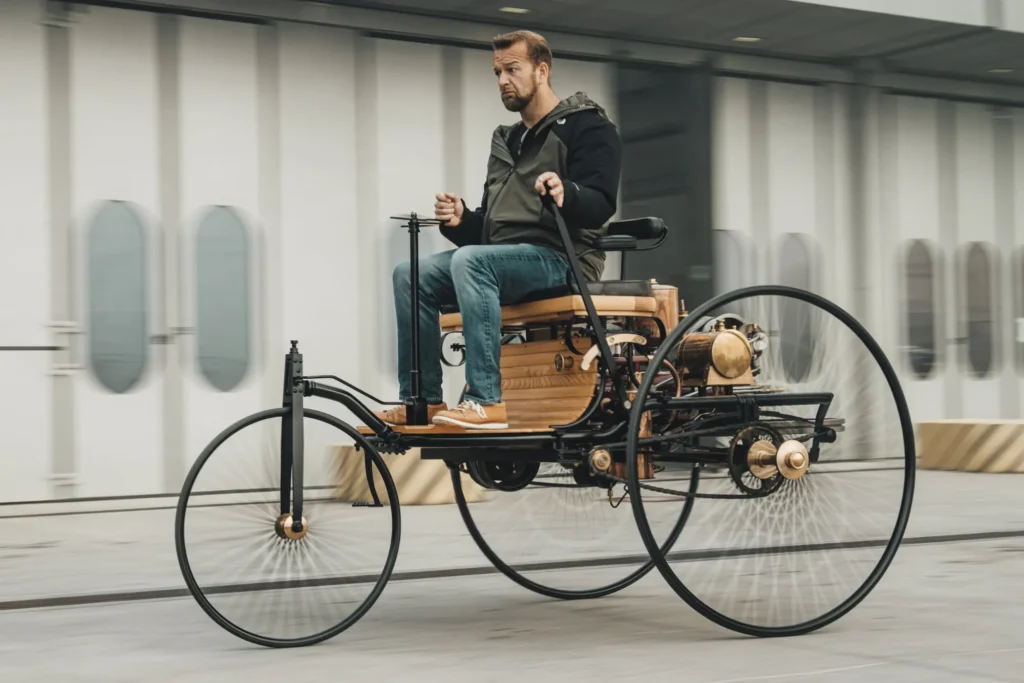The invention of the automobile is one of the most significant milestones in human history, revolutionizing transportation and shaping the modern world. Cars have evolved from simple machines to complex, high-tech vehicles that are an integral part of our daily lives.
But when was the first car invented, and how did this groundbreaking invention come to life? This article delves into the fascinating history of the first car, exploring its origins, inventors, and the transformative impact it has had on society.
Origins of the Automobile
To understand the history of the automobile, we must trace its origins back to the 18th century. The idea of a self-propelled vehicle was conceived long before the first practical car was built. Early inventors experimented with steam engines, which were the driving force behind many industrial innovations at the time. However, it was not until the late 19th century that the first practical automobile came into existence.
The invention of the first car is often credited to Karl Benz, a German engineer and inventor. In 1886, Karl Benz unveiled the Benz Patent-Motorwagen, which is widely regarded as the world’s first automobile. This revolutionary vehicle was powered by an internal combustion engine and marked the beginning of a new era in transportation.
The Pioneers Behind the First Car

Several inventors and engineers contributed to the development of the first car. While Karl Benz is often celebrated as the inventor of the automobile, it is essential to acknowledge the contributions of other pioneers:
- Karl Benz: As mentioned earlier, Karl Benz is credited with inventing the first car. His Benz Patent-Motorwagen was a three-wheeled vehicle powered by a single-cylinder internal combustion engine. It featured innovative components such as a clutch, throttle, and gear system, making it a groundbreaking invention.
- Gottlieb Daimler and Wilhelm Maybach: These German engineers were contemporaries of Karl Benz and played a crucial role in the development of early automobiles. In 1885, they built the Daimler Reitwagen, a motorized bicycle powered by a small internal combustion engine. This invention laid the groundwork for modern motorcycles and cars.
- Nicolas-Joseph Cugnot: Before the invention of the internal combustion engine, Nicolas-Joseph Cugnot, a French engineer, built a steam-powered vehicle in 1769. While not a car in the modern sense, Cugnot’s invention is considered a precursor to the automobile.
- Henry Ford: Although Henry Ford did not invent the first car, he revolutionized the automobile industry by introducing assembly line production. This innovation made cars more affordable and accessible to the general public, transforming them from luxury items to everyday necessities.
How the Benz Patent-Motorwagen Worked
The Benz Patent-Motorwagen was a marvel of engineering for its time. It was powered by a four-stroke internal combustion engine that ran on gasoline. The engine produced 0.75 horsepower and was capable of propelling the vehicle at a top speed of 10 miles per hour. The car featured several key components that are still used in modern automobiles:
| Component | Function |
|---|---|
| Internal Combustion Engine | Provided the power needed to propel the vehicle |
| Clutch | Allowed the driver to engage and disengage the engine |
| Throttle | Controlled the speed of the engine |
| Gear System | Enabled the vehicle to operate at different speeds |
| Steering Mechanism | Allowed the driver to control the direction of the vehicle |
The Benz Patent-Motorwagen was not only a technological innovation but also a symbol of human ingenuity and determination.
Impact of the First Car on Society

The invention of the first car had a profound impact on society. It transformed the way people traveled, worked, and lived. Here are some of the key ways in which the automobile revolutionized the world:
- Improved Transportation: The car made it possible to travel longer distances quickly and conveniently. It connected rural and urban areas, facilitating trade and communication.
- Economic Growth: The automobile industry became a significant driver of economic growth. It created jobs, spurred innovation, and contributed to the development of related industries such as oil, steel, and rubber.
- Urbanization: Cars played a crucial role in the expansion of cities. They enabled people to live farther from their workplaces, leading to the growth of suburbs and urban sprawl.
- Cultural Impact: The car became a symbol of freedom and independence. It influenced art, literature, and popular culture, shaping the identity of the 20th century.
Evolution of Automobiles
Since the invention of the first car, automobiles have undergone tremendous evolution. Technological advancements have made cars faster, safer, and more efficient. Key milestones in the evolution of automobiles include:
- Introduction of Electric Cars: In the early 20th century, electric cars gained popularity for their quiet operation and ease of use. However, they were eventually overshadowed by gasoline-powered vehicles.
- Mass Production: Henry Ford’s introduction of assembly line production in 1913 made cars affordable for the average person. The Ford Model T became the first mass-produced car, revolutionizing the industry.
- Safety Innovations: Over the years, cars have been equipped with safety features such as seat belts, airbags, and anti-lock braking systems, reducing the risk of accidents and injuries.
- Environmental Awareness: In recent decades, the focus has shifted towards sustainability. Hybrid and electric vehicles have gained popularity as eco-friendly alternatives to traditional gasoline-powered cars.
FAQs About the First Car
Q1: Who invented the first car?
A: The first car was invented by Karl Benz in 1886. His Benz Patent-Motorwagen is widely regarded as the world’s first automobile.
Q2: What powered the first car?
A: The Benz Patent-Motorwagen was powered by a single-cylinder four-stroke internal combustion engine that ran on gasoline.
Q3: How fast could the first car go?
A: The Benz Patent-Motorwagen had a top speed of approximately 10 miles per hour.
Q4: Were there any cars before the Benz Patent-Motorwagen?
A: Before the Benz Patent-Motorwagen, there were steam-powered vehicles such as Nicolas-Joseph Cugnot’s invention in 1769. However, these were not practical for everyday use.
Q5: How did the first car impact society?
A: The invention of the first car revolutionized transportation, facilitated economic growth, and influenced cultural and social dynamics.





